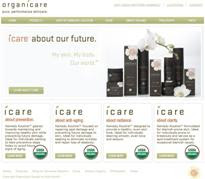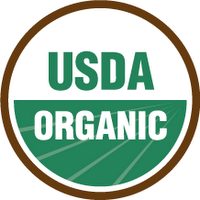 Organic, natural, USDA certified, petrochemical free ... all of these sound great, but when it gets down to it, which is the best for your body and the environment?
Organic, natural, USDA certified, petrochemical free ... all of these sound great, but when it gets down to it, which is the best for your body and the environment?As I posted last month, many skincare companies' "organic" products are being put to the test ... and failing. Quite a few products are labeled natural or organic when they have harmful ingredients, chemicals, and non-organic ingredients. Below is a quick lesson on what consumer should be aware of before venturing into the world of organic skincare -- don't be duped by impostors!


If a product is labeled "natural," at least one ingredient in the product has simply made from the earth. After ingredients are taken from the earth, they can be altered, chemicals can be added, and the end product can be harmful.

If a product bears the seal to the left reading "Made with Certified Organic Ingredients," it is 70% organic; the other 30% can be anything (petrochemicals, harmful parabens, dangerous ingredients, etc.).
If the product claims to be made with certified organic ingredients and DOES NOT have the seal, it can have LESS THAN 70% organic ingredients.
If a product simply touts itself as "organic," it was made with one or more ingredients that were organically farmed without pesticides. Once again, the end product can contain harmful elements.

If a product bears the USDA Organic seal, it's the gold standard. USDA certified organic products are 100% free of harmful petrochemicals and parabens and are made with at LEAST 97% certified organic ingredients. Personal care products which bear this seal are evaluated with the same standards as food products which, in essence, makes Organicare's products food quality! Not only are USDA certified organic products made of safe ingredients, but the process and facilities also must be approved.
To start the new year off on the right foot, take a walk in Organicare's shoes and see what a real organic product/company goes through before receiving the USDA Organic seal. Read about the requirements for organic certification, click here.




